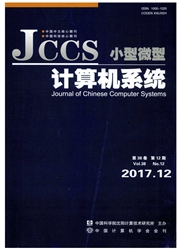

 中文摘要:
中文摘要:
发现干扰节点,并将功率适当地分配至各个可用频谱上,以提高节点数据率和网络吞吐量,是认知无线电网络当前的研究热点.本文提出一种基于非协作博弈功率分配方法(PANG),以提高认知无线网络系统吞吐量.PANG将认知网络节点功率分配问题转化为非协作博弈问题,并采用线性代价因子的方法抑制功率分配时的盲目性.理论分析表明,PANG存在纳什均衡点,具有帕累托最优解.本文使用Matlab对PANG算法进行仿真,仿真结果表明,PANG算法能够比PIWF算法更加合理的进行功率分配,并有效的提高系统吞吐量.
 英文摘要:
英文摘要:
In cognitive radio networks,how to discover the interference nodes and appropriately allocate power on all available spectrum according to the degree of interference to improve node′s data rate and network throughput is the current research focus.A new solution of power allocation based on noncooperative game theory(PANG) is presented to improve network throughput in cognitive radio networks(CRNs) in this paper.The new solution converts the power allocation problem into noncooperative game problem,and uses a linear price factor to restrain node′s blindness when node allocates power on multi available spectrums.Theory analysis shows that the new method PANG has Nash equilibrium point and Pareto optimal result.We use tool MATLAB to simulate the method PANG,the simulation results show that,compared to method PIWF,PANG can be more effective to allocate power on all available spectrum and improve network throughput.
 同期刊论文项目
同期刊论文项目
 同项目期刊论文
同项目期刊论文
 期刊信息
期刊信息
